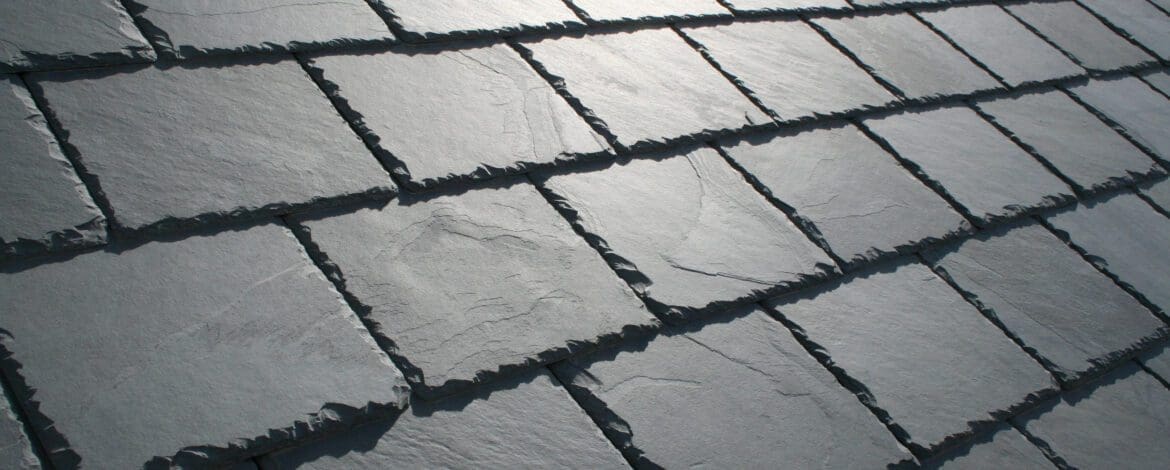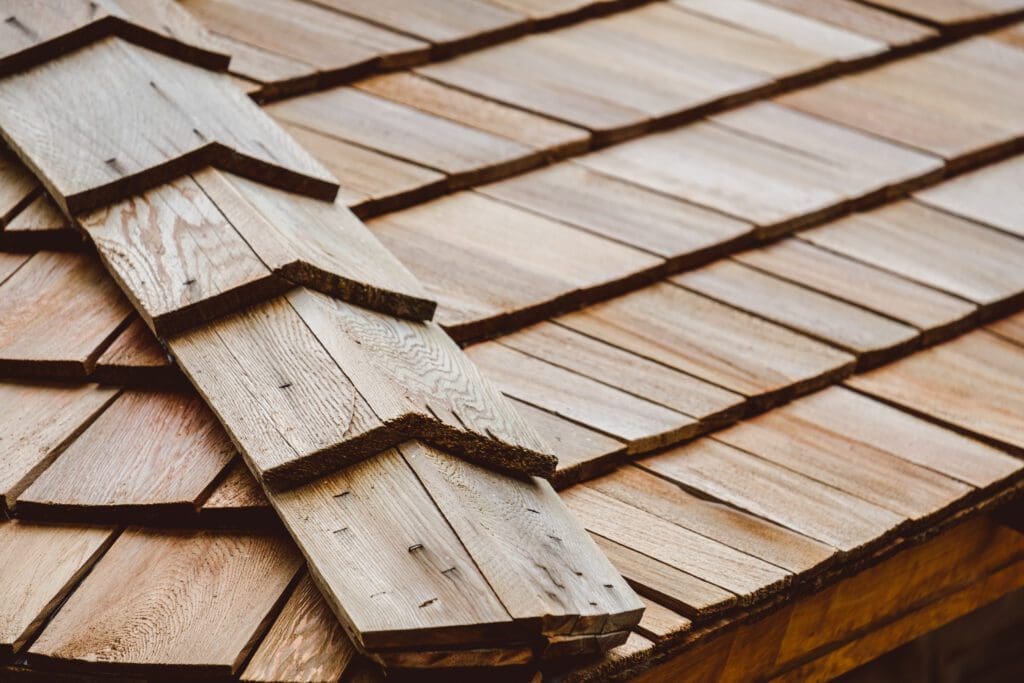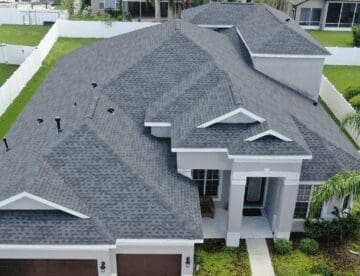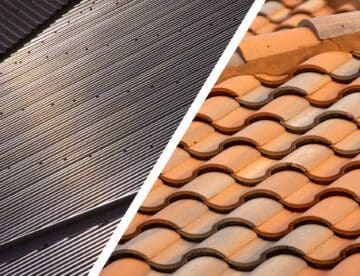In this post, I looked into the future of roofing materials. One option that stands out is plastic, which can be formed into tiles that mimic both slate tiles and clay tiles. Manufacturers can also form plastic into tiles that resemble cedar shakes. The company that makes these products, Brava, has a good-looking website and their products look great. But are plastic tiles better than clay tiles?
Why Would Plastic Be Better Than Natural Materials?
Every material has its advantages and drawbacks. Let’s take a look at the pros and cons of each option.
Slate will last for 100-plus years, but it’s ultra-heavy, requires expert installation, and is actually not impervious to moisture, despite what many people think. While stone is incredibly durable in general, micro-fissures do exist and when combined with freezing, can result in slate tiles cracking over time. These micro-fissures are too small to see but over time, water and freezing will have their way. Water will infiltrate the cracks and during freezing temperatures, will gradually destroy the tiles. This doesn’t mean the roof is toast, but repairs are a fact of life, as with any other roof. So slate tiles require replacement from time to time. Slate is, though, completely impervious to fire with a Class A rating, so that’s a bonus.
Clay tiles have been used all over the world for thousands of years, which is understandable considering they’re made from locally available clay. You’ll see clay tiles in flat shapes and in wavy or barrel shapes, and they’ll also last for decades and sometimes for 100-plus years. They do require maintenance like cleaning and are somewhat brittle, so they don’t handle impacts well. That classic Spanish or Mediterranean look, though, is so appealing! Like slate, they’re impervious to fire and have a Class A fire rating. And like slate, they’re heavy, so they require beefy roof framing. If your roof is marginal for the task, you’ll need some framing upgrades.
Cedar shakes or wooden shakes are another beautiful and traditional material. They’re thick and chunky with a really organic feel to them. As with any other wood product that is out in the elements, however, they are not a low-maintenance material. Even cedar, with it’s natural rot resistance, needs to be cleaned periodically. Moss, algae, lichen and other organisms can build up, so you should periodically remove those materials. If tall conifers surround your home and drop needles, those will build up quickly and trap moisture on your roof, which you don’t want. Cedar is definitely a combustible material and does not get a Class A fire rating. In fact, increasing wildfire risk has prompted many municipalities to prohibit wooden shakes completely.
Is Plastic Really Better?
Plastic, in contrast, offers a few notable benefits. First, the company, Brava, says they make molds for the plastic tiles from the cedar, slate, and clay tiles they’re copying. Based on the photos, they’ve dialed in the production process for the plastic tiles pretty well and they look good.
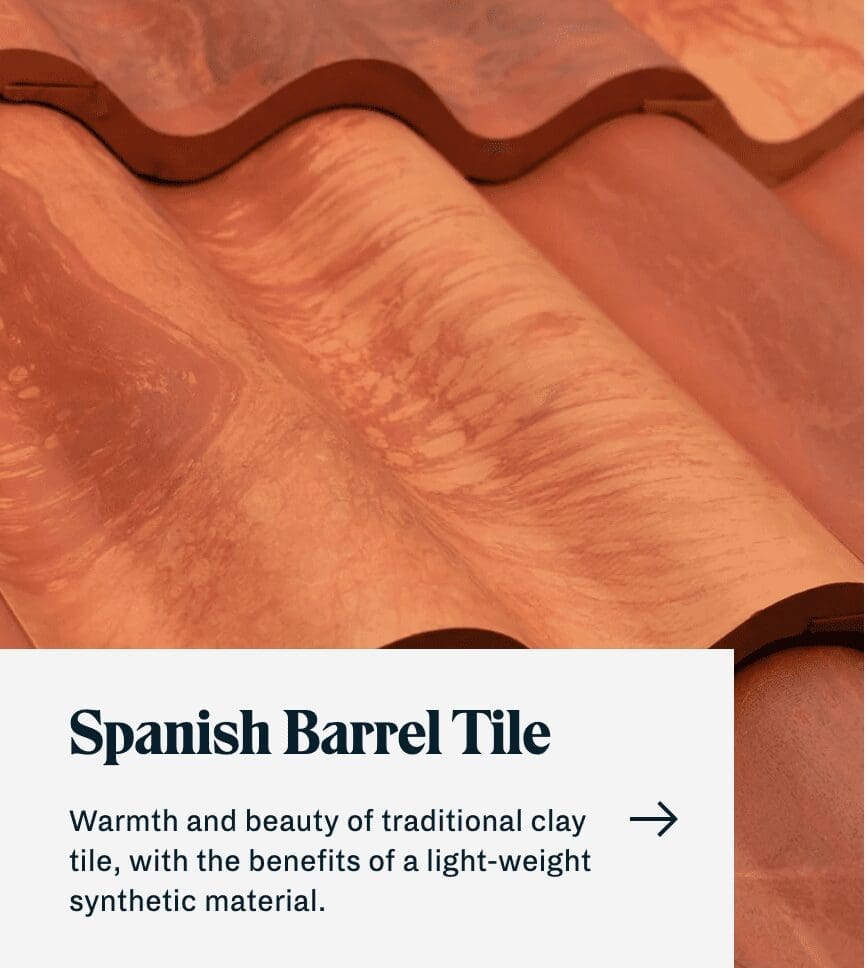
Next, plastic tiles offer Class 4 impact resistance, which is the highest rating. When you live in a place with high winds and hurricanes, getting maximum impact protection is a no-brainer. Weight is also another huge factor. Cedar shakes are not a heavy material, but slate tiles and clay tiles are both very heavy. If your home was not built to accommodate those roofing materials, you can expect that your roofing contractor will need to beef up some of your home’s framing for slate or clay tiles.
Here are some numbers to wrap your head around: Brava’s products plastic products come in at 257-430 lbs/square. A square, by the way, is 100 square feet and it’s the standard measurement unit in the roofing industry. In comparison, slate weighs 800–1000 pounds per square, clay tile weighs from 600 pounds per square, while concrete roof tile weighs from 950 pounds per square. Architectural shingles weigh from 180–240 pounds per square, and cedar shakes weigh from about 200–400 pounds per square.
I mention these weights to emphasize that by choosing a lighter weight material like these plastic tiles or shakes, you could upgrade from 20-year asphalt shingles to 50-year tiles or shakes. You would save yourself the cost of framing upgrades but still spend roughly the same for a premium material. According to Brava, their “products will be comparable in cost to other high-end roofing such as slate, shake, clay tile, and other composites. The cost savings will be most evident in the maintenance costs.”
What About High Winds?
For Florida residents, there’s sun, wind, and rain, guaranteed. Here’s what Brava says about their product’s durability in wind: “Brava tiles are tested and approved to withstand wind speeds of up to 188MPH with nails and up to 211MPH with high wind / screw installation.” So that’s a plus. I don’t know if a natural wind speed over 200 mph has ever been recorded, in fact.
What About Competitors?
Naturally, Brava is not the only company making plastic tiles and plastic shakes. Da Vinci is another company that makes plastic shakes and slate tiles. You can see for yourself how they compare, but with a lifetime warranty, I’d say that’s appealing, depending on the conditions of the warranty. They make their products from virgin resins, rather than recycled plastic as Brava uses. Da Vinci claims that their product costs much less than true slate roofing tiles. Again, if you were upgrading from asphalt shingles to real slate, you would forgo the costly framing upgrades.
So, Are Plastic Tiles Better Than Clay Tiles?
As a homeowner, I would be excited for a lightweight, 50-year-plus, premium roof that doesn’t dent or crack. Plastic tiles and shakes could be that option. And they’re recyclable. But like I said, no one knows really the future of roofing materials, but these are good ideas. Either way, we’re here to help with most types of roofs, so no matter what type of roof you have, we can help you through the process. Our team has more than 40 years of experience in roofing. Give us a call at 813-373-9088, or use this form and request more information and we will contact you.

